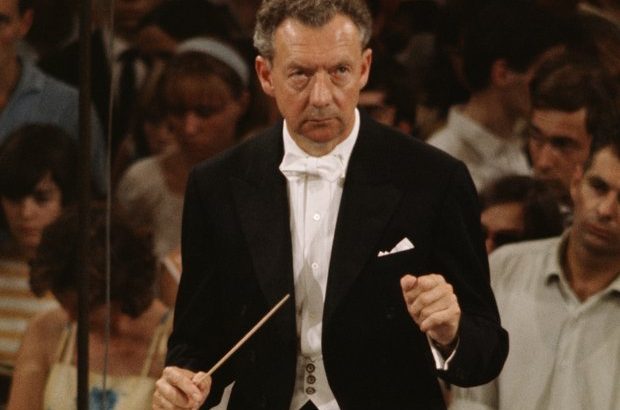Pat O’Kelly
November is a month of remembrance maybe made more poignant this year with the commemoration of the ending of World War I. Two concerts, tomorrow (November 9) in the National Concert Hall and on Saturday (November 10) in Dublin’s St Patrick’s Cathedral, will focus not only on the horrors of war but also on the challenge of reconciliation.
Both events involve RTÉ with its two orchestras and Philharmonic Choir taking part in Benjamin Britten’s War Requiem at the NCH while Brahms’s Ein Deutsches Requiem occupies the RTÉCO and the Cathedral Choir in St Patrick’s.
While the Brahms work can stand alone it is being supplemented here with orchestral and choral pieces by Arnold Bax and Edward Elgar dating from World War I years.
Bax, who had strong connections with Ireland, wrote his In Memoriam in the aftermath of the 1916 Rising. Elgar’s For the Fallen – the last movement of his three-part The Spirit of England – was composed between 1914 and 1917 with words by poet and art scholar Laurence Binyon.
Britten’s War Requiem is considered by many to be his masterpiece. The opportunity to compose it presented itself with the planned opening the new St Michael’s Cathedral in Coventry on May 30, 1962. The old building had been virtually demolished by German bombing on February 14, 1940. The new structure’s message was, and still is, one of reconciliation, something to which pacifist Britten enthusiastically responded.
For his texts Britten turned to the Latin Requiem Mass but into which he interpolated nine poems by Wilfred Owen, one of Britain’s finest anti-war poets. As it tragically happened Owen was killed on active service in France just a week before the ending of hostilities in November 1918.
Chamber ensemble
Besides the standard choral forces, the War Requiem also demands a boys’ choir, large orchestra and chamber ensemble. Britten’s hopes that his three solo voices would be drawn from Russia, Britain and Germany were thwarted by Soviet officialdom, which refused soprano Galina Vishnevskaya permission to travel. Co. Down soprano Heather Harper, who was joined by tenor Peter Pears and baritone Dietrich Fischer-Dieskau, took her place and Meredith Davies, assisted by the composer, conducted the first performance.
The Irish première in Dublin’s St Patrick’s Cathedral on March 27, 1963 had Heather Harper, repeating her Coventry role, alongside tenor David Galliver and baritone Donald Bell. The RTÉSO and Culwick Choral Society were under the baton of Tibor Paul, assisted by Seoirse Bodley. Tomorrow’s soloists will be Ailish Tynan, Robin Tritschler and Gavan Ring with David Brophy conducting.
Brahms chose the texts for his Requiem from Martin Luther’s Old and New Testament translations. The idea initially stemmed from the death of Schumann in 1856 but it waited until the passing of Brahms’ mother in 1865 to motivate the composer’s memorial.
Although much appreciated when heard in Bremen Cathedral, in a six-movement format, on Good Friday 1868 Brahms was dissatisfied. He added an ethereal soprano solo and the complete work had its Leipzig première on February 18, 1869.
Led by St Patrick’s assistant organist David Leigh, Saturday’s soloists, with the RTÉCO, will be Rachel Croash, Eoghan Desmond and Jeffrey Ledwidge.


 Composer Benjamin Britten
Composer Benjamin Britten 